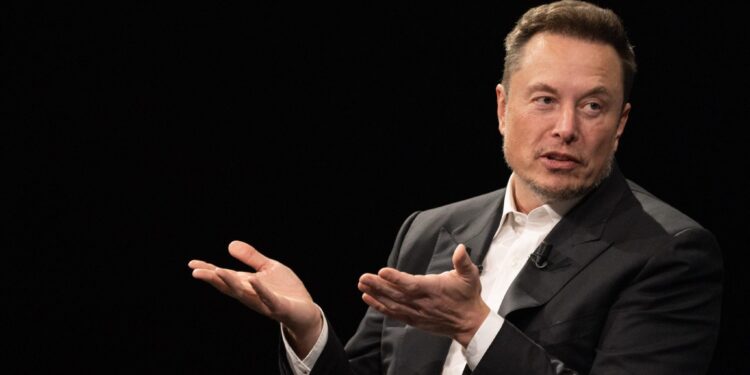
Weeks after investors slammed Tesla for a splashy robotaxi event that was light on details, Tesla executives divulged key details Wednesday about the planned autonomous ride hailing service—including revealing that the company is already testing the service with its employees in the San Francisco area.
“For Tesla employees in the Bay Area, we already are offering a ride hailing capability,” Musk said on the company’s third quarter earnings call on Wednesday. “With the development app, you can request a ride, and it’ll take you anywhere in the Bay Area,” he said, noting that these employee test rides include safety drivers.
Until now, the public has gotten few details on what exactly Tesla’s robotaxi service would entail over the five years that Musk has been talking about it. While autonomous cars operated by rival Waymo are on the streets, driving paying passengers around in multiple cities, Tesla’s robotaxi plans are still a work in progress. Two weeks ago, at the long-awaited robotaxi launch event, Musk didn’t go into many specifics about the timeline or even whether Tesla planned to manage the service itself, sending shares of the company down more than 7%.
On Wednesday, Musk and other executives shared timelines with investors, including that Tesla is planning to start conducting paid rides sometime next year in California and Texas.
“We think that we’ll be able to have driverless Teslas doing paid rides sometime next year,” Musk said on the call.
As Musk previously disclosed, Tesla will start the service using existing Tesla models, and eventually transition to the “Cybercab”—a golden, two-seat autonomous car without steering wheels or pedals that Tesla unveiled at its event this month. Musk said that Tesla is aiming to eventually produce between 2 million and 4 million Cybercabs each year. “These are just my best guesses,” Musk said during Wednesday’s earnings call. Musk, who has acknowledged he can be optimistic with his timelines, also said that he expects to launch ride hailing service in California and Texas before expanding to other states. He noted that obtaining regulatory approval in California could add some uncertainty to the timeline.
Seth Goldstein, a Morningstar analyst who covers the company, said he believed Tesla could deploy a paid robotaxi service “on a small scale” next year, but doubted it would be large.
“Elon Musk has thrown out optimistic timelines that we’ve seen be delayed multiple times and by multiple years before we get a tangible product on the road,” he said, adding: “But with Tesla, it’s hard to say. Nothing is impossible.”
Tesla had a strong quarter overall, reporting $25.2 billion in total revenue, up 8% from the year-ago period. The company, which has cut costs in recent months through layoffs, also said that the Cybertruck has become profitable, and that it is on track to deliver a more-affordable electrical vehicle in the first half of 2025.Elon Musk says Tesla’s robotaxi service has already begun employee testing in San Francisco
Data Sheet: Stay on top of the business of tech with thoughtful analysis on the industry’s biggest names.
Sign up here.







